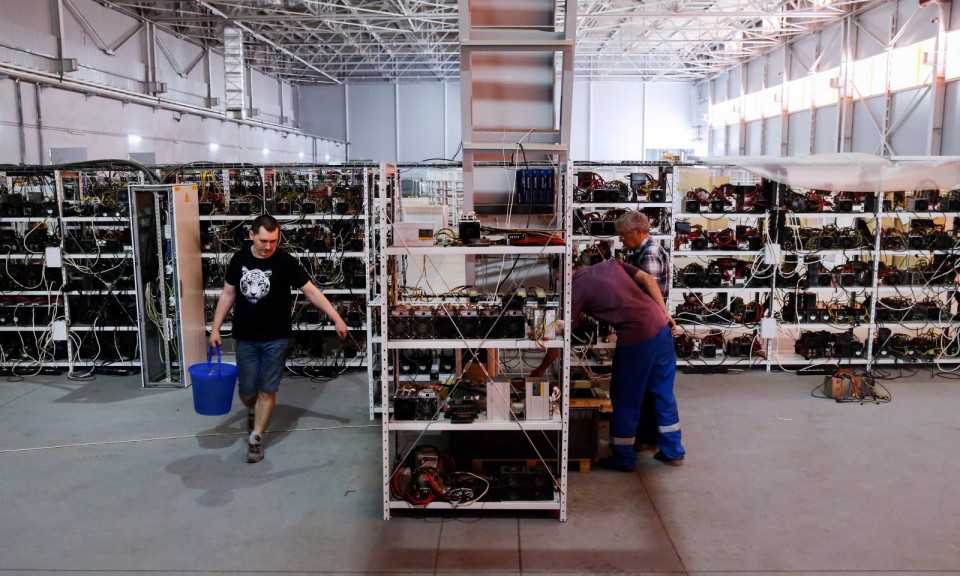Are cryptocurrencies sorcery? Maybe the real magic is in blockchain
20 January, 2018

Will the City of London really survive Brexit by becoming the world’s cryptocurrency center? Perhaps. Can bitcoin get through its current cliff-fall crash? Possibly. Is blockchain going to transform our working world? Probably.
Today’s enigmatic hype-fuelled gold-rush world of blockchain, computer cryptography and cryptocurrencies raises many questions but supplies tantalizingly few clear answers in return. One certainty – and it is too early to know if this is important, sad or absolutely hilarious – is that never before has humanity been so interested in a database.
The British writer, scientist and futurist Arthur C. Clarke said that any truly advanced technology, when first seen by the public, is indistinguishable from magic. Blockchain, which is only ten years old and, at face value, a data network, does seem to go a long way toward proving that.
According to its growing legion of devotees, blockchain’s links to the current cryptocurrency boom are a temporary distraction. It might be the software driver behind the crypto bubble.
But the real magic, they say, lies with blockchain’s data not being held in one central location but across hundreds, thousands or even millions of computers, in an environment that is supposedly secure, unalterable and easily verifiable.
This, goes the mantra, makes blockchain an agent of decentralization of the sort that will make today’s legion of go-betweens – be they bankers, property agents or even online social networks like Facebook – unnecessary, thereby revolutionizing the way we interact commercially and socially.
As the author and media theorist Steven Johnson grandly wrote in last week’s New York Times Magazine, “the blockchain idea offers a tantalizing possibility for those who would like to distribute wealth more equitably and break up the cartels of the digital age.”
Others, less enthusiastic, say it will be transformative, certainly, but not so much in terms of societal game-changing. Blockchain, they say, will merely update that altogether more prosaic world of accounting.
The truth lies with time but it has to be said that blockchain’s detractors are very much in a small, and seemingly diminishing, minority. And the fact that blockchain is rapidly entering the mainstream is clear. The serious, big-player news stories now appearing almost by the hour show that blockchain’s murky past as the software driver of bitcoin – in the days when the Big Daddy of cryptocurrencies was purported to be the trade token of choice for anonymity-seeking, dark web-loitering gangsters – is very much over. The question now is not if blockchain will enter the mainstream but how.
In the past week alone, Shell announced it had invested in an energy focussed blockchain startup, Kodak launched a blockchain-driven images rights partnership with London photo agency Wenn Media (and, as a fitting sign of the times, doubled its stock in doing so), and IBM and shipping giant Maersk formed a joint venture that will use blockchain to track cargo movements. And seemingly, this month at least, the more positive blockchain news that comes out, the quicker the values of cryptocurrencies crash downwards.
Yet in amongst all this big money earnestness, there is still plenty of crypto-weirdness. Like the story that said a crash last week that caused the cryptocurrency market to lose something like US$100 billion in a day, was caused not by the clampdowns by Chinese or South Korean regulators or by Warren Buffet’s negativity but because of a video posted on YouTube claiming bitcoin was created by aliens. Well, of course.
And there is still the crypto-ridiculous. Last week there was a story about Jesus Coin, which “unlike morally bereft cryptocurrencies … has the unique advantage of providing global access to Jesus that’s safer and faster than ever before.” It was meant to be a parody of the crypto industry but is now actually attracting investors. Go figure.
There is also the scary. Like the news that bitcoin’s huge energy usage – caused by its complex mathematical problem-solving “mining” component – will now soon use more energy than all of New Zealand or Hungary (and that this has caused big crypto mining operations in China and Russia to situate themselves right next to power stations).
Or the story that says China’s current crackdown on crypto is not just about energy usage but actually because many of the schemes are, pure and simple, good old-fashioned Ponzi scams.
But, in this world of addictive uncertainty, the real point is probably that the weird and the funny and the scary … all relate to stories about the currencies. The positives sit very much with the blockchain. So is that where the future magic lies? Possibly. Will that future be paid for in cash? Probably.
TAG(s):
